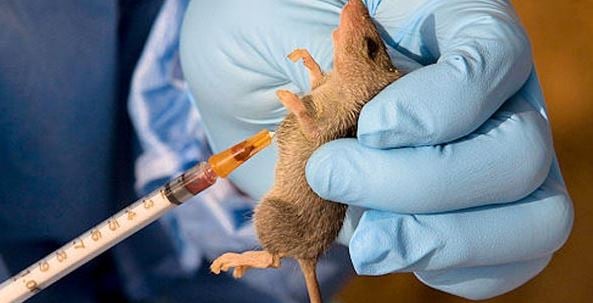The Nigeria Centre for Disease Control and Prevention says it recorded 2,621 suspected Lassa fever cases and 84 deaths with a case fatality rate of 18.6 per cent.
The NCDC said 476 cases were confirmed from the suspected cases from 23 states across 84 Local Government Areas, as of February 18, 2024.
The Director-General of NCDC, Dr Jide Idris made this known on Friday at a press briefing in Abuja.
“The NCDC was notified yesterday by the Kaduna State Ministry of Health of the report of deaths from suspected viral hemorrhagic fever at the 44 Nigerian Army Reference Hospital in Kaduna. Following this notification, the NCDC has been working with both institutions to conduct a comprehensive investigation of the suspected cases as well as ramp up response activities.
“Four of the six blood samples from suspected cases sent to the Bayero University Teaching Hospital in Kano have been confirmed for Lassa fever. Furthermore, twenty-five close contacts of all these cases are now under follow-up and placed on prophylactic medicine.
“The State Ministry of Health has also activated their Incident Management System with all the response pillars including intensified risk communication and community engagement for the prevention and control of Lassa fever in the affected communities.
“As of February 18, 2024 (end of week 7), 84 Local Government Areas in 23 states of the country have reported a total of 2,621 suspected cases, 476 confirmed, and 84 deaths with a case fatality rate of 18.6 per cent. Our condolences go to the families and friends of those (including the health workers) who lost their lives to this disease across the country,” he said.
PUNCH Healthwise reports that Lassa fever is an acute viral haemorrhagic fever caused by the Lassa virus. The natural host organism for the virus is the Mastomys natalenced rodent (commonly known as the multimammate rat or the African rat). Other rodents can also be carriers of the virus.
The virus spreads through direct contact with droppings ( urine, faeces, saliva, or blood) from the infected rats; contact with objects, household items, and surfaces contaminated with these droppings; consuming food or water contaminated with these droppings; and person-to-person transmission can also occur through direct contact with an infected person’s blood, urine, faeces, vomits, and other body fluids.
The disease initially presents like any other common illness accompanied by a fever, such as malaria. Other symptoms include headache, general body weakness, cough, nausea, vomiting, diarrhoea
Meanwhile, the NCDC boss said the activated multi-sectoral multi-disciplinary Incident Management System has started distributing medical supplies for case management, infection prevention and control, laboratory diagnosis, etc. in all the Lassa fever treatment centres in the country.
He urged Nigerians to always keep their environment clean, and block all holes in the house to prevent rats and other rodents from entering.
The NCDC DG also advised healthcare workers to always practice standard infection prevention and control practices.
Idris said, “Cover your dust or waste bins and dispose of your refuse properly, communities should set up dump sites far from their homes to reduce the chances of the entry of rodents into their homes, safely store food items such as rice, garri, beans, corn/maize, etc., in tightly sealed or well-covered containers.
“Avoid drying food stuff outside on the ground or roadside, where it is at risk of contamination, discourage bush burning as this destroys the homes and food sources of rodents and drives them to migrate from the bushes to human residences to find food, eliminate rats in homes and communities by using rat traps and other appropriate and safe means.
“At all times, practice good personal and hand hygiene by frequently washing hands with soap under running water or using hand sanitisers when necessary, visit the nearest health facility if you notice any of the signs and symptoms associated with Lassa fever. This is essential because early identification and treatment of cases appear to be more effective and can save lives, and avoid self-medication to ensure proper diagnosis and early treatment,” he added.









